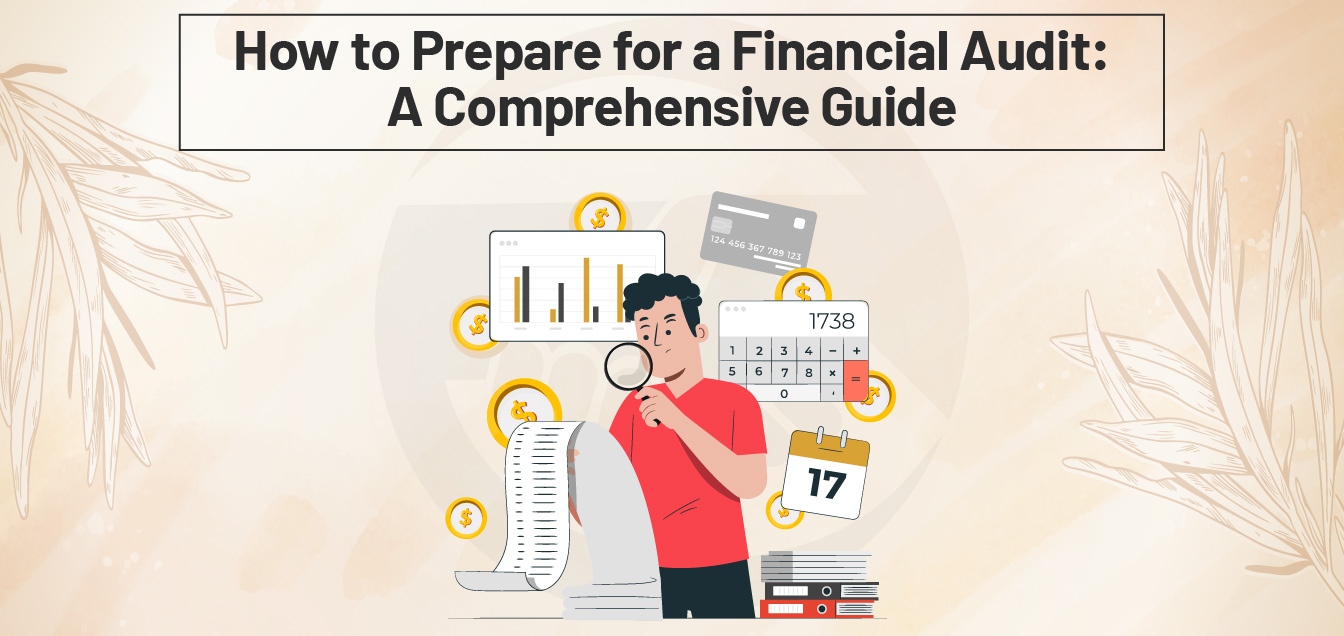
07 Nov 2024
How to Prepare for a Financial Audit: A Comprehensive Guide
A financial audit is conducted by an independent auditor and refers to a systematic examination of an organisation’s financial statements, accounting practices and internal controls. This process is aimed at ensuring accuracy, transparency and compliance. It verifies that the presented financial information is a true representation of an organisation’s financial position, hence enhancing investors’ confidence. As a global financial hub, the United Arab Emirates (UAE) implements robust financial reporting regulations, thereby increasing the need for financial audit best practices. Preparing for a financial audit can seem daunting, but with the right preparation, you can ensure that the audit process is smooth and effective. A comprehensive audit preparation involves understanding the key audit process, organising financial records, and communicating effectively with auditors. This blog provides an effective financial audit checklist for businesses and essential strategies for a seamless audit.
Understanding the types of audits
• Internal Audit:
An internal audit provides an independent evaluation of an organisation’s operations, processes, and controls. It helps the organization achieve its objectives by assessing the effectiveness of risk management, governance, and internal controls. Internal auditors play a crucial role by examining financial practices, compliance with regulations, and providing insights.
• External Audit:
An external audit is conducted by a third-party auditing firm and refers to the independent evaluation and verification of financial statements. These audits are performed to assess whether the financial statements are in compliance with the accounting standards and represent an accurate representation of the organization’s financial position.
How to prepare for an audit?
• Plan Well
The foundation of a successful financial audit preparation is a well-crafted plan. Through it, you can identify areas that need attention. To curate an effective audit plan, begin by understanding the scope of the audit and the specific requirements set by your auditors. This includes engaging with the auditors to discuss the timelines and documentation needs. The IFRS is the applicable audit standard in the UAE, and it is important to familiarise yourself with these relevant standards before crafting a plan.
• Preserve Your Records and Organise Them Well
Documentation, including bank records, transaction information, receipts, etc., must be preserved and well-maintained. Accurate and well-organised records facilitate a successful audit and increase the credibility of the organization. Examine whether your records are up-to-date and maintained. To begin with, review your financial statements meticulously and ensure that they represent the true representation of your finances. You should also consider storing records in a cloud-based system as it helps in accessibility, data security, and easier retrieval of information.
• Conduct Internal Reviews and Check Internal Controls
Comprehensive internal reviews are substantially beneficial in assessing the effectiveness of internal controls before the auditors arrive. You can conduct internal audits to identify the weak areas and discrepancies. Internal audits mitigate risks by allowing you to proactively address issues before the official audit. Additionally, internal controls must be assessed, including the evaluation of authorisation processes and specific operations. These controls must be robust in order to ensure that fraud and errors can be prevented. Through these steps, you can enhance your credibility with the auditors.
• Perform Account Reconciliation
Account reconciliation at a regular interval is a critical step to identifying errors or fraudulent activity. It ensures that your financial statements are accurate and consistent. Account reconciliation involves documentation reviewing, bank reconciliations, inter-company transactions, and reviewing general ledger accounts with relevant documentation. Account reconciliation is not only a significant step in preparing for an audit, but it also helps in accurate tax reporting and prevents others from stealing from your company. Overall, it strengthens your financial health and provides accuracy in financial reporting.
• Prepare a Timeline and Assign Responsibilities
For a seamless audit preparation, creating a timeline is essential as it helps keep the audit process on task. Set deadlines by determining the expected completion date of each component of audit preparation while allowing buffer time for potential issues. Moreover, you can review the relevant requirements of the auditor and prepare a list in order to assign responsibilities based on team strengths. An effective timeline and delegation of tasks ensure that the audit process is aligned, avoiding last-minute errors.
Ensure a seamless audit with AMCA
Effectively preparing for a financial audit can streamline the process and facilitate a smoother audit experience. AMCA is a reliable auditor in the UAE that provides comprehensive auditing services. AMCA specialises in financial audit compliance and audit preparation for businesses, ensuring that your organisation complies with regulatory standards and identifying potential issues. AMCA not only prepares your business for a smoother audit experience but also positions it for long-term success.
Read More: How to Audit Your Virtual Asset Holdings As per VARA in Dubai
Read More: Top 8 Audit Firms in Dubai
Read More: Bookkeeping Tips for Startups to Maintain Positive Cash Flow
Read More: The Essential DIFC List of Auditors: Ensuring Financial Transparency and Compliance



.jpg)
